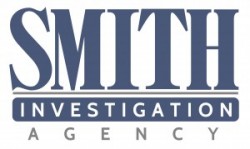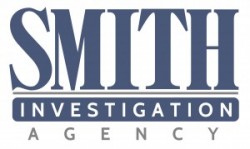Area of Law: Private Investigation
Answer # 1000
How to become a licensed private investigator
Region: Ontario Answer # 1000To work as a private investigator in Ontario you must have a valid licence issued by the Ministry of the Solicitor General (MSG). The MSG is responsible for overseeing the private investigation industry, which is governed by Ontario’s Private Security and Investigative Services Act, 2005 (Act). In addition to licensing requirements, the Act sets out rules and regulations, as well as a Code of Conduct that private investigators must follow. According to the MSG, there were over 2,300 private investigator licenses issued in Ontario in 2022-2023. It is very important to get the right training to become a licensed private investigator .
To get legal advice with regards to setting up a private investigation business, ask a lawyer now.
Why are private investigators required to be licensed?
Obtaining a licence requires private investigators to understand the legal elements of the job and helps to ensure that they are committed to acting within the law. Furthermore, learning the rules and regulations of the industry, which are required for licensing, will help ensure that private investigators avoid breaking the law and being charged with an offence while in the course of doing their job.
Who can become a private investigator?
To be eligible for a private investigator licence, you must:
- Be 18 years of age or older
- Be legally eligible to work in Canada
- Have a clean criminal record as per Ontario regulations
- Provide a Criminal Record and Judicial Matters Check (CRJMC) issued within the last six months. Applicants must obtain a CRJMC on their own (previously the MSG handled this internally as part of the application process)
- Complete mandatory training and testing from an approved provider
- Obtain an Ontario Testing Completion Number (TCN) after successfully passing the required test
What if I have a criminal record?
Under the Act, “a clean criminal record” is defined as:
- a person who has not been convicted of a prescribed offence under the Criminal Code (CC), and the Controlled Drugs and Substances Act (CDSA), or
- the person has been convicted of such an offence and a pardon under the Criminal Records Act (Canada) has been issued or granted.
Whenever a new private investigator licence is applied for, and whenever a licence is renewed, the MSG requires that a police records check is conducted. The Act lists approximately 200 offences under both the CC, and the CDSA that render a person ineligible for a private investigator licence.
If the applicant has a criminal charge, or a conviction for which a pardon (now called a record suspension) has not been granted, their application will likely be refused. Persons who have been convicted of, or charged with an offence that is not listed in this regulation might still be eligible for a licence. However, the MSG will need to review their file to determine if they are eligible. If you have ever been charged with a crime and fingerprinted, the best course of action is to have the record removed.
Steps required to be licensed as a private investigator
Once a person has met the eligibility requirements, there are three steps that must be completed to become a licensed private investigator:
- Basic training course
Before applying for a licence, all new private investigators must successfully complete a basic training course and pass the required exam.
There are separate training courses for security guards and private investigators, and only ministry-compliant training providers, such as Training Centre Canada, are authorized to offer them. Recent regulatory changes require training providers to also be licensed agencies for the courses they deliver. For example, to provide security guard training, the provider must hold a valid security guard agency licence, and the same applies to private investigator training.
If you wish to apply for a dual licence to work in both roles, you must complete both courses and pass the corresponding tests.
Once the basic training course is successfully completed, the applicant will be issued a certificate of completion. The certificate contains a completion number, which will be needed to register with ServiceOntario to schedule the licensing exam.
- Licensing exam
The purpose of the licensing exam is to verify that the applicant understands the material learned during the basic training course. The exam consists of 60 multiple-choice questions. Exam results are normally available within two days of taking the exam.
- Apply for a private investigator licence
After you complete the basic training course and successfully pass the exam, you can apply for your private investigator licence. The application is made through ServiceOntario, either by mail or online.
In order to process your application, ServiceOntario is required to collect personal information about you in order to add the correct details to your private investigator’s licence. This includes your name, address, and testing completion number.
Identification
As of September 30, 2023, Ontario transitioned to a fully digital licensing system. Physical licence cards are no longer issued, and all private investigators must download and print their digital licence or keep an electronic copy readily available while on duty.
Will I need to renew my private investigator licence?
In Ontario, a private investigator licence must be renewed every two years. It will expire two birthdays after the day it was issued. It should be renewed at least 30 days before it expires in order to continue to legally work as a private investigator.
What if my licence expires and I continue to work as a private investigator?
If you work as a private investigator while your licence is expired you could be charged with a violation under the Act, and if convicted you could receive a fine of up-to $25,000, imprisonment for up-to one year, or both.
Council of Private Investigators of Ontario (CPIO)
While there is not a private investigation association or society that investigators must belong to, many do become members of the Council of Professional Investigators of Ontario (CPIO). CPIO is a non-profit organization whose membership consists of private investigators who are licensed by the Province of Ontario, are insured and who adhere to the By-laws, Code of Ethics and Privacy Policy of the Council. Private investigators must pay CPIO a membership fee to be a part of their organization.
Get help
To get legal advice with regards to setting up a private investigation business, ask a lawyer now.
To have someone conduct a background check and for other investigation services, contact our preferred Investigators, Smith Investigation Agency .
You now have options:




